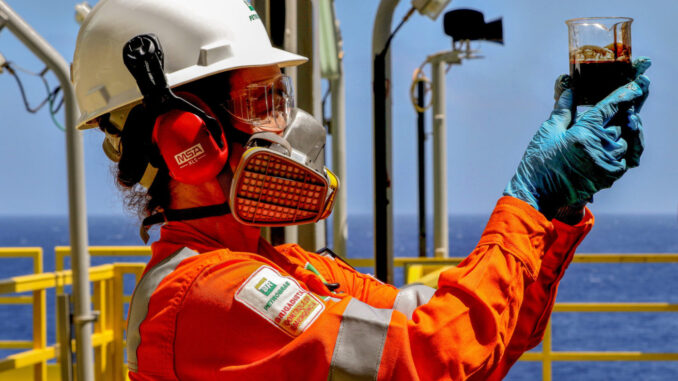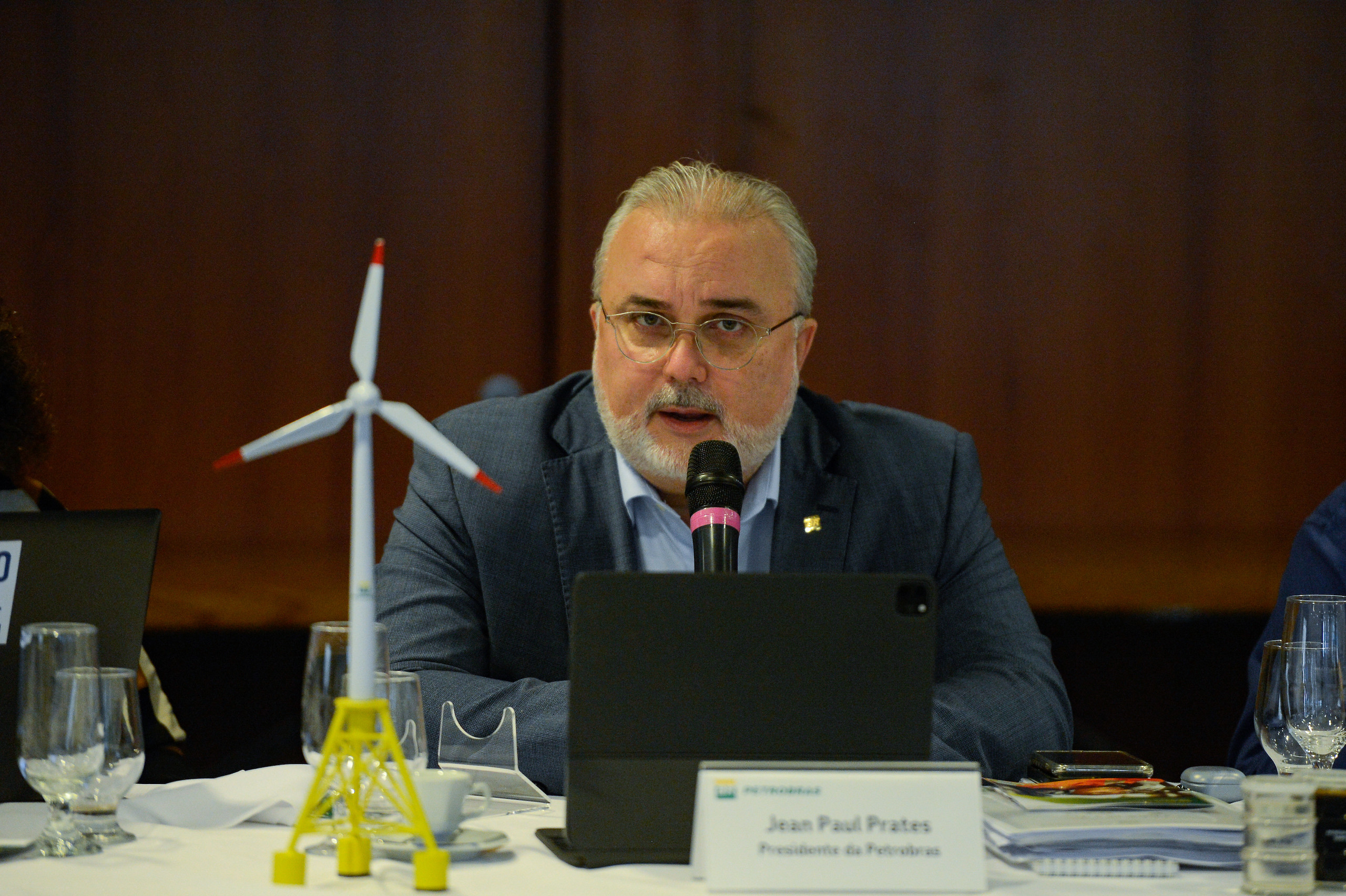
As the COP28 climate conference opens in Dubai next week, Brazil will be presenting a contradiction to the world: while promising to accelerate its energy transition, the country continues to invest massively in oil.
One of the key movers in this area is Petrobras. In April, the country’s state oil company created a new directorate to oversee its work on the energy transition and renewables. Meanwhile, in a statement about its 2024-2028 strategy, to be launched this Friday, the company says it will invest 11.5 billion reais (US$2,35 billion) in low-carbon projects, without suddenly giving up oil production.
Petrobras is also pushing for permission to drill for at the Foz do Amazonas Basin, a project still awaiting an environmental licence, and one that has proven controversial due its possible threats to a sensitive and biodiverse area of the Amazon. The company is also eyeing international expansion, having announced its intention to open a subsidiary in China in 2024, with the aim of facilitating trade and partnerships between the two countries.
There is much speculation about Petrobras’ next steps as its 2023-2027 strategic plan – launched during the administration of former president Jair Bolsonaro – deepened the company’s commitment to fossil fuels and buried renewable energy projects, according to André Luis Ferreira, executive director of the Institute for Energy and Environment (IEMA), and an environmental management professor at the University of São Paulo. Under the previous plan, Petrobras planned to spend less than 1% of its total investments on clean energies.

“With the new government [of President Lula], we’ve seen talk that [Petrobras] is going to invest in renewables again,” says Ferreira. “We need to pay attention to this movement and the new plan, to what the discourse and practice will be like.”
Various studies and organisations have highlighted the need for countries to drastically reduce and eventually phase out fossil fuels. A study published in Nature, for example, estimates that oil and gas production should be reduced by 3% a year globally by 2050 in order to limit global warming to 1.5C by the end of the century – a target accepted by Paris Agreement signatories, including Brazil, to avoid the worst effects of climate change. Contrary to that trajectory, the growth in Brazil’s oil production exceeded expectations in October, with the country setting new records for output, according to the latest report from the International Energy Agency.
Petrobras finds Chinese partners
The proposal to set up a subsidiary in Asia will bring Petrobras closer to its biggest international client: China. The country is the main destination for Petrobras’ sales abroad, and accounted for 40% of its oil exports in the third quarter of this year.
The oil company’s chief executive, Jean Paul Prates, described China as “a decisive partner in Petrobras’ strategy to regain its global presence,” after the company saw its net exports fall in 2022 by 28% from the previous year. Petrobras is still recovering from a tumble in 2021, when it saw its market value plunge by more than 100 billion reais (US$19 billion) in only two days amid political interference in the state-owned company.
The proposed subsidiary is also an attempt to strengthen ties with China, according to Prates, after a friction-filled four years during the Bolsonaro government. “It’s important for them. It is an interesting signal, saying that in the same way that we have a Petrobras America, we will have a Petrobras China, because both countries are equally important to us,” he told Reuters in August, during a visit to China.
Prates’ visit saw agreements signed with state-owned firms CNOOC and Sinopec to collaborate in the energy sector, namely oil exploration. For China, such partnerships offer opportunities to secure reserves for the world’s second oil-consuming nation, behind only the United States. But despite its place as among the top oil consumers and greenhouse gas emitters, China has also invested heavily in renewable energies. Developing closer ties with companies in the country means Petrobras would have the opportunity to gain expertise in renewables, analysts say.

“Oil can be an inducement for investment in partnerships… in technologies that are not so mature today, such as green hydrogen, in which China is more advanced,” says economist Luciano Losekann, coordinator of the energy and regulation group at Fluminense Federal University.
During his China trip, Prates also signed several memoranda of understanding with the China Development Bank and the Bank of China, to advance cooperation in low-carbon business and green finance, among other initiatives, without detailing what specific actions these would involve. He also indicated an intention for Petrobras to invest in green hydrogen, lithium batteries and offshore wind energy – sectors within which China is already a leading presence.
The time to make oil finance the transition to zero emissions is now, not in the indefinite future
Luciano Losekann, Fluminense Federal University
China could be a great ally in these respects, says Losekann. Data from the China Global Investment Tracker shows that direct investments by Chinese companies in overseas renewable energy (excluding hydropower) have increased sixfold from US$140 million in 2018 to US$800 million in 2022.
The notion that Petrobras has a responsibility to finance Brazil’s energy transition has already appeared in the speeches of both President Luiz Inácio Lula da Silva, who has called on the company to invest in research into renewable fuels, and Helder Barbalho, governor of the state of Pará, the likely host of COP30 climate summit in 2025. On the eve of his departure for COP28 in Dubai, Barbalho told the Valor Econômico newspaper that he was in talks with the president of Petrobras over plans for the oil company to allocate resources to the bioeconomy and protection of the Amazon.

However, in October, the governor said that he was also in favour of carrying out oil surveys in the Equatorial Margin, a maritime region that encompasses the north of Brazil, including Pará and the Foz do Amazonas Basin, at the meeting of the Amazon and the Atlantic.
“The question is whether Brazil should maintain its appetite, opening up new frontiers of exploration, or plan a gradual transformation of this industry,” says Losekann. “The time to make oil finance the transition to zero emissions is now, not in the indefinite future.”
Oil investment to continue for Brazil
Petrobras’ not-so-green moves are in line with the Lula administration’s plans to allocate even more resources to the oil and gas sector than his predecessor Jair Bolsonaro – despite having put the environment at the centre of his election campaign. The company’s new multi-year plan – which defines the strategic objectives during the current government term, and is currently being debated in Brazil’s congress – foresees spending 479 billion reais ($97 billion) in the sector over four years, compared to 364 billion reais ($74 billion) by the previous government over the same period.
The plan was also unprecedented in its inclusion of an energy transition programme, with 937 million reais ($191 million) allocated towards such initiatives – representing just 0.2% of the resources earmarked for the oil sector, as highlighted in an analysis by the Institute for Socio-Economic Studies (INESC).
“Although it is an agenda that places Brazil as a strategic player on the global stage, when we look at the public budget proposed by the government for next year, policies for the energy transition simply disappear,” states the report, which was launched in September. Brazil also intends to continue investing in oil exploration in the pre-salt layer in the deep waters off the Brazilian coast, with Petrobras planning to install 11 new platforms by 2027.

Another project already underway is the building of a 45 billion reais ($9 billion) platform in the pre-salt of the Campos Basin, off the south-east coast of Brazil, due to be inaugurated in 2028. The consortium for the project includes Petrobras, Norway’s Equinor and the Spanish-Chinese joint venture Repsol Sinopec.
For economist Losekann, exploiting the pre-salt this decade, which he describes as one of China’s main interests in Brazil, “is inevitable”.
Brazil would have a lot to offer in terms of research and development in a partnership with China, according to Rejane Rocha, a researcher from the China-Brazil Centre for Innovative Technologies, Climate Change and Energy at the Federal University of Rio de Janeiro. “Brazil is one of the countries that transfers the most technology [with partners], and has expertise in deepwater exploration that is of great interest to the Chinese,” she says.
Petrobras was approached for comment but said through its press office that it would not comment on issues related to the ongoing negotiations with Chinese entities, nor its role in the national energy transition plans.
In the meantime, Petrobras is set to be present at COP28 in Dubai, with other state-owned oil companies, their goals for decarbonising the sector.
But will these goals include compensating for their outsized contribution to climate change? A new study by the Climate Analytics policy institute estimated the damage caused by greenhouse gas emissions and the earnings of 25 oil companies between 1985 and 2018, including Petrobras. According to its authors, the state-owned company – which appears in 17th place in a list topped by Saudi Aramco – could have been responsible for $500 billion in climate losses and damage. In the same period, it accumulated around $700 billion in profits.
COP28, for which Brazil will be sending around 2,400 delegates, will likely put the tensions between national priorities, climate protection and continued exploration for oil under the spotlight.
For IEMA’s Ferreira, Brazil is trying to spin multiple plates. “It seems to me that Petrobras isn’t just going for fossil fuels. It’s betting on both,” he says. “The oil industry is going to have to go into renewables, and it [Petrobras] is already doing so. There will be no energy transition if the oil money doesn’t migrate to renewables either. The question is how fast.”
ENB Top News
ENB
Energy Dashboard
ENB Podcast
ENB Substack



